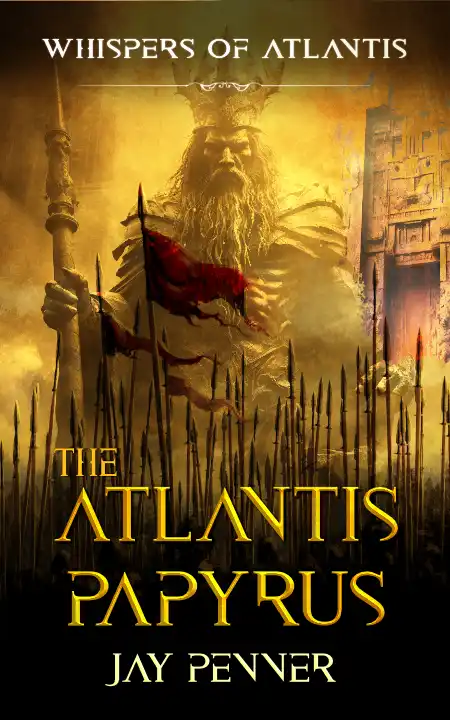Did Aliens Build Pyramids and Were Our Ancestors Really Dumb
While browsing Facebook groups, I often encounter intriguing posts about remarkable historical feats. Whether it’s the Pyramids, a stunning temple from Greece, India, or elsewhere, the posts either carry sensational titles (like “Could humans have really built this?”) or feature people questioning humanity’s capability, with others marveling at a supposed “lost” incredible technology from the past.
This frustrates me a bit. Do we really think so lowly of our ancestors so much that we can’t believe they achieved these wonders? And do we doubt our present capabilities, assuming we couldn’t replicate such feats?
Talent in Every Age
Every era produces individuals who stand out, displaying brilliance and innovation. Just as our modern age boasts pioneers such as Jobs and Eiffel, the ancients had their visionary leaders. They conceptualized and constructed structures like pyramids and ziggurats, not with alien technology, but with pure determination, intellect, and an innovative application of the resources available to them. It’s important to remember that many of these architectural masterpieces took decades, even centuries, under successive leaders, involving the relentless efforts of thousands of workers, architects, and engineers.
Wonders Beyond Egypt
The pyramids of Egypt often steal the spotlight, with many wondering aliens built them. But human ingenuity spans across cultures. The Mayans constructed impressive pyramids, aligning them with cosmic events. The Sumerians, while erecting ziggurats, displayed expertise in urban planning and hydraulic systems. Greeks displayed exquisite craftsmanship with marbles. Persians built amazing palaces. In India, the Hoysala temples stand as testimony to advances in art, architecture, and engineering.
Attributing these marvels to alien craftsmanship diminishes the legacy of these ancient civilizations. Our forefathers had plenty of brilliant people and sponsors who were willing to fund amazing works.
Progress, Not Forgotten Technology
Another perspective suggests that our ancestors possessed advanced technology that got lost over time. But progress is built on the foundation of past knowledge. What might seem as “lost” is essentially the evolution of technology. We transition, adapt, and innovate based on previous discoveries.
Modern Marvels Echo Our Capabilities
Today’s architectural wonders underscore human capability:
- Burj Khalifa in Dubai: Beyond its height, it’s a great example of modern architectural prowess.
- Large Hadron Collider: Delving deep into particle physics, it’s a giant leap towards understanding the universe.
- Millau Viaduct in France: A blend of design and functionality, it stands as a modern engineering marvel.
- International Space Station: A symbol of space exploration and international cooperation.
Let’s not forget the astonishing progress in computing in just the last few decades. For our ancients, it would be nothing short of godly and magical and yet we are not gods and it is not magic. It’s science. And it’s progressive understanding of how the world works.
If we set our mind to replicate any ancient marvel, we absolutely could do it. We’d need money, time, and material.
Human Curiosity: A Driving Force
From ancient times to the present, one trait remains unchanged: human curiosity. It pushes us to explore, innovate, and redefine boundaries. The structures, both old and new, signify our relentless pursuit of knowledge and mastery.
While the universe’s vastness and the possibility of other civilizations are exciting, it’s essential to acknowledge human achievements. Our ancestors, equipped with their era’s tools and knowledge, achieved greatness, just as we continue to do today. Their feats need no extraterrestrial explanation.
4.5/5 from 4000+ ratings (overall). Grab a thriller from Jay.
Some secrets are best left buried.
“pure enjoyment…”
A frequent #1 on Amazon’s Ancient Egyptian History bestseller lists.
323 B.C., Babylon
King Alexander the Great has died, and his bloodthirsty generals quarrel for the pieces of a vast empire. But Captain Deon faces his own nightmare, born of a shameful past: a vicious lender threatens to sell his wife and young daughter into slavery if he does not clear his crippling debt.
Hope glimmers when the dead king’s wily secretary dangles a mission that whispers of an unimaginable reward.
Thrust into the murky and dangerous waters of succession where his success holds the keys to the ultimate prize, Alexander’s throne, Deon faces a terrifying choice: complete the mission and earn his family’s freedom, or refuse and let them perish in Nubia’s brutal gold mines.
Assisted by a companion as skilled in tongues as she is with a dagger, and pursued by malignant forces that will stop at nothing, Deon must cross violent lands to find an astonishing mystery hidden for a thousand years. But every step closer to freedom unveils a burden far heavier than his debt, for his choices could determine not only his family’s fate but that of a million innocents.

Jay Penner’s highly-rated books regularly feature Amazon’s category bestseller lists. Try his Spartacus, Cleopatra, Whispers of Atlantis or Dark Shadows books. Reach out to him or subscribe to his popular newsletter.

